Gray-Scott Model at F 0.0980, k 0.0550
These images and movie demonstrate the behavior of the Gray-Scott reaction-diffusion system with σ=Du/Dv=2 and parameters F=0.0980, k=0.0550.
Any starting pattern will quickly fill the field with blue; blue spots remain separate for a while creating a pattern of linked negative loops; these then gradually coalesce as smaller loops shrink and boundaries occasionally break down. This is an almost exact negative of the phenomenon seen immediately to the east, although faster. At the end we see a single curved line; this becomes almost completely straight after about 1,000,000 tu.
Categories: Munafo σ; Wolfram 2-a (glossary of terms)
 increase F increase F
 | |||
  |
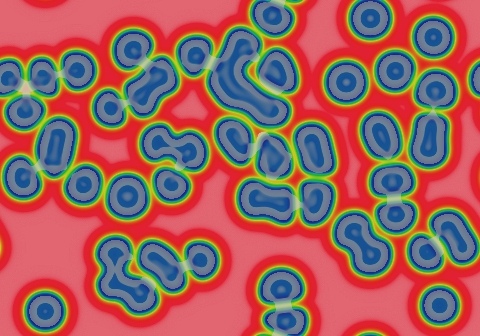
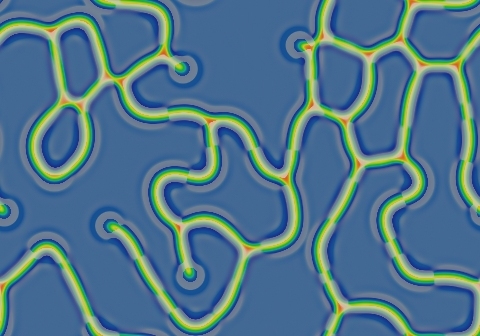
|
15 frames/sec.; each fr. is 631 iter. steps = 315.5 tu; 1801 fr. total (568,215 tu) |  increase k 
|
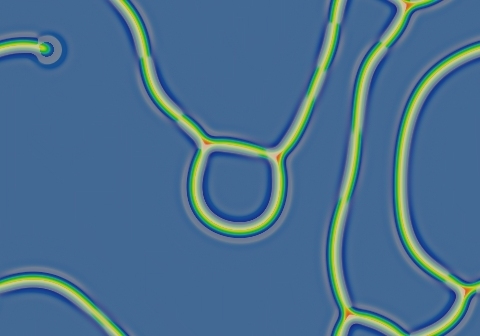
|
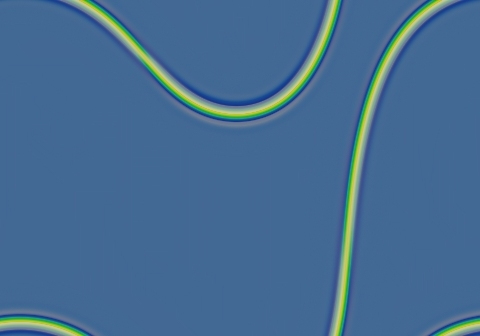
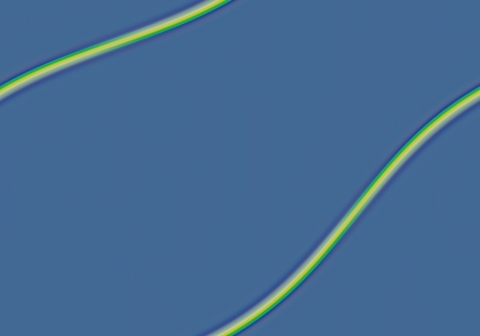
| ||

 |
In these images:
- Color indicates level of u, ranging from purple (lowest u values) through blue, aqua, green, yellow and pink/red (highest u values)
- Areas where u is increasing are lightened to a light pastel tone; where u is decreasing the color is vivid.
- In areas where u is changing by less than ±3×10-6 per tu, an intermediate pastel color is seen. This includes areas that are in steady state or equilibrium.
''tu'' is the dimensionless unit of time, and ''lu'' the dimensionless unit of length, implicit in the equations that define the reaction-diffusion model. The grids for these simulations use Δx=1/143 lu and Δt=1/2 tu; the system is 3.2 lu wide. The simulation meets itself at the edges (periodic boundary condition); all images tile seamlessly if used as wallpaper.
Go back to Gray-Scott pattern index
This page was written in the "embarrassingly readable" markup language RHTF, and was last updated on 2019 Jan 05.
 s.11
s.11